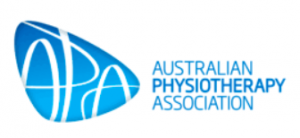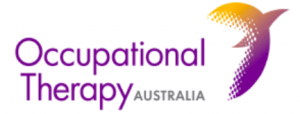Painful shoulder conditions that limit movement are very common, and are caused by injuries affecting the shoulder joint, muscles, tendons, ligaments and cartilage. It is possible to do more movements with the arm than with any other part of the body. The arm is such a useful tool that it’s a pity that there are only two of them!
The bones that make up the arm include the humerus, in the upper arm, and the two bones of the forearm, the radius and ulna, as well as the little bones of the wrist, hand and fingers. The arm is very special as it enables the hand to get into all sorts of useful positions.
The shoulder joint in particular, being a universal joint, has a huge range of movement. The hand can go above the head, behind the back and even across to scratch behind the other shoulder. The elbow works like a hinge joint allowing the hand to come nearer or go further away from the body.
The elbow and wrist combined allow manipulation of the hand through more than 180 degrees i.e. from palm up to palm down, the wrist helps with grip, whilst the joints in the hand, thumb and fingers allow the dexterity of finger movement.
Since the nerves that supply the shoulder and arm originate from the neck and upper spine, conditions such as Vertebral Dysfunction commonly contribute to pain in the shoulder.




Frozen Shoulder; Chronic Shoulder Pain and Stiffness; Shoulder Muscle Spasm and Tension; Arthritis of the Shoulder; Diagnosis of Shoulder Pain; Rotator Cuff Disorders such as tears and strains; Impingement Syndrome; AC Joint Injury.
In order to determine the cause of your pain, your Physiotherapist will conduct a full physical, orthopaedic and neurological examination of the shoulder, cervical and thoracic spine.
You will be asked to perform shoulder range of motion and muscle strength tests. Where the pain is felt, both at rest and during movement of the shoulder, provides important clues as to the cause of the shoulder pain. Signs of Shoulder Pain may include restriction in the movements of the shoulder, both active (the person doing them themselves) and passive (the joint being moved by someone else).Upward motion is usually less than 100 degrees (ie not far above shoulder level) and the arm cannot be turned outward more than 30 degrees. It may also be necessary to undergo specialized diagnostic tests such as XRay, Ultrasound and/or MRI scans.
Regardless of the cause, treatment of the shoulder complex requires an experienced physiotherapist who can test the movements and structures of the shoulder and come to an accurate diagnosis of the problem. Physiotherapy treatment can then focus on the core problem. The initial objective of all shoulder injuries is to relieve pain and inflammation. Whilst many doctors will recommend non-steroidal anti-inflammatory drugs (NSAIDs) to relieve pain and swelling, the benefit obtained by applying ice-packs can be equally, if not more beneficial.
Your Physiotherapist will be able to assist you with suitable shoulder motion exercises and shoulder strengthening and rehabilitation exercises during your recovery. Book an appointment online today – we provide tailored physiotherapy, occupational therapy, hydrotherapy, clinical Pilates, massage and bracing treatments to cater for your specific condition.
A Physiotherapy session involves our Physiotherapist taking you through a thorough professional physical assessment followed by a diagnosis of your specific problem. Physiotherapists help you understand what causes the problems and related injuries as part of our educational approach to integrating the treatment with your lifestyle. This is then followed by a variety of treatment techniques and exercises to assist your return to mobility and full function.
The average physiotherapy session varies from 20 – 30 minutes, with most patients receiving a structured series of exercise and stretches to do at home to complement their treatment in our physiotherapy clinic. All our treatments are one-on-one in private treatment rooms – we never see more than one patient at a time. You do not need a Doctor’s referral to see our Physiotherapists and health funds will pay a rebate for part of the cost of your physio consultation.
Our Physiotherapists use the latest hands-on techniques such as joint mobilisation, manipulation, stretching, taping, soft tissue techniques and dry needling to assist in pain management and injury recovery. We also focus on personalised exercise programs involving biomechanical analysis, specific muscle activation, strengthening and conditioning exercises, balance and proprioceptive neuromuscular facilitation, postural correction, and core stability training to assist in the restoration of the physical function, injury rehabilitation and performance of the body.
Physiotherapists are experts in the prevention of all kinds of injury, particularly sports injuries. We work with health club practitioners and provide advice or complement training techniques in preventing injury. Our physiotherapists will discuss any important lifestyle factors such as training programs, sporting goals, workstation setups and postural correction to help prevent problems from recurring or better still, from happening in the first place. In many cases there is more than one cause of your pain, especially if it is a chronic or recurring problem.
Whether you have injured yourself while working out in the health club, doing normal activities at home, at work or on the sporting field, our Physiotherapists will help you recover in a speedy, complicated-free treatment to get you back to your normal activities. Physiotherapists focus on the assessment, maintenance and restoration of the physical function and performance of the body and minimise your chance of re-injury. Getting you back to your fitness regime quickly is what Physiotherapists aim for.
At your initial visit your physiotherapist will perform a thorough physical assessment enabling them to diagnose your condition. Once your condition has been diagnosed your physiotherapist will then explain it to you and specific treatment will be recommended and commenced to help solve your problem. This process is likely to take around 40 minutes.
A Doctor’s referral is welcome but not necessary if you are attending one of our clinics as a private patient. You do however require a referral from your Doctor if your problem is related to a motor vehicle accident, or if you are a Veterans’ Affairs patient.
You do not need a Doctor’s referral if your problem is related to a workplace injury. However, your first medical certificate will need to come from your Doctor.
If you are in a Private health Insurance Fund and are covered for Ancillary Cover or “extras’’ then you will be eligible to receive a rebate. Currently there is only limited funding for treatment of chronic conditions via Medicare.
At our clinics we use an electronic payments and claiming system called HICAP’s. This system allows you to automatically claim your rebate from your Health Fund immediately following your treatment. All you need is to present your Health Fund Card to one of our receptionists who instantly process your claim. Once this is completed all you are required to do is pay the ‘gap amount’ (the difference between the treatment fee and the rebate you received from the Health Fund). This can be paid with cash, cheque, credit card or EFTPOS.
There are some provisions for limited physiotherapy costs to be covered under Medicare. To qualify for this you must be suffering from a condition that has been present, or is likely to be present for at least 6 months and your GP must be currently using a personally managed EPC (Enhanced Primary Care) multidisciplinary plan. If you meet these two criteria then this may enable you to receive up to 5 Medicare funded treatments per year. To find out all necessary details ask your GP or contact us for more information.